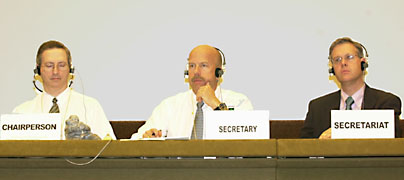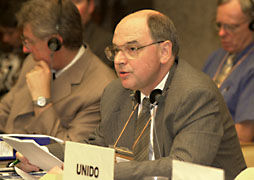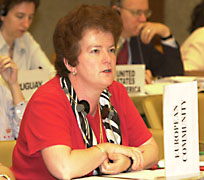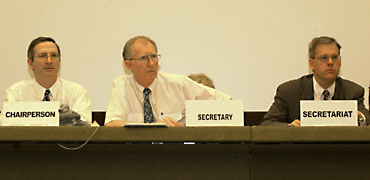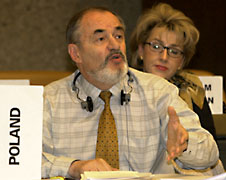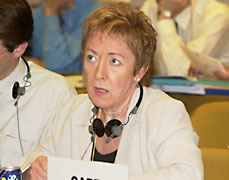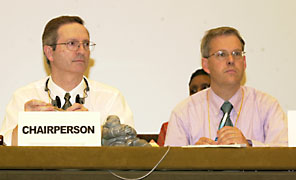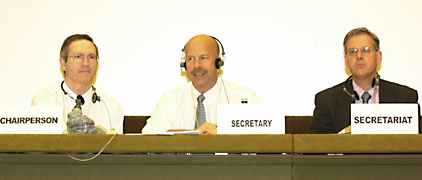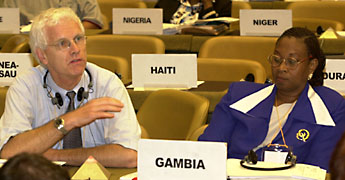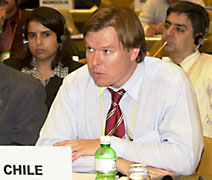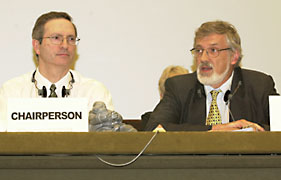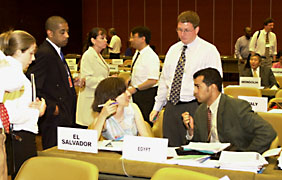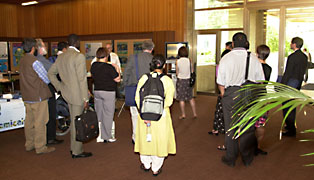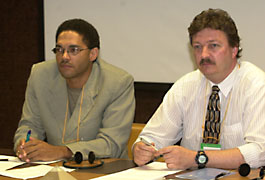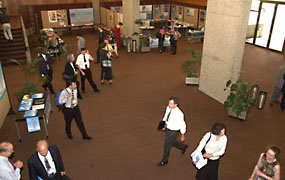|
|
Thursday,
20 June:
On the fourth day
of INC-6, delegates met in morning and afternoon Plenary sessions, in
two morning contact groups and one evening contact group. In the morning
Plenary, delegates completed deliberations on financial resources and
mechanisms, interim financial arrangements, measures to reduce or eliminate
releases from intentional production and use and register of specific
exemptions, and measures to reduce or eliminate releases from stockpiles
and wastes. In the afternoon, delegates discussed information exchange,
technical assistance, and effectiveness evaluation. The two morning contact
groups on the POPs Review Committee (POPRC) and best available techniques
(BAT) and best environmental practices (BEP) finalized their work and
presented reports to Plenary in the afternoon. The evening contact group
finalized four decisions related to technical assistance and capacity
building.
|

